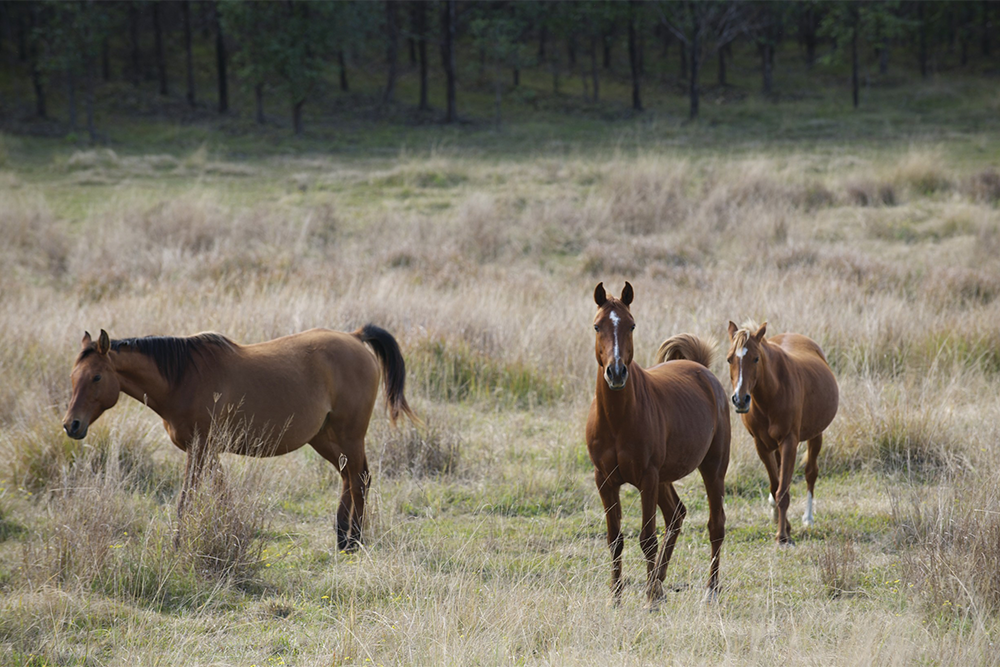This year commemorates 30 years since Hendra virus was identified in horses in Australia. To date, the virus has only been reported in horses in Queensland and New South Wales and never outside of Australia. In recognition of this, let’s shine the spotlight on Hendra virus.
Hendra virus is a Henipavirus within the family Paramyxoviridae. It is a highly infective virus that is known to cause illness in horses and in rare cases humans. There have been two reported cases of Hendra virus infection in dogs with no clinical signs of illness. Flying fox bats are the reservoir host for Hendra virus. All four species of flying fox are known to harbour the virus. Horses can become infected with Hendra virus when they are exposed to the urine, faeces or saliva of an infected bat. Infected horses can spread the virus to humans in rare cases. There is no evidence that Hendra virus can spread directly from flying foxes to humans or between humans.
To date, there have been more than 100 reported cases of Hendra virus in horses and seven cases in humans. The virus has a high mortality rate, leading to death in approximately 80% of all infected horses and 75% of humans.
The clinical signs of Hendra virus in horses can vary. An infected horse may present with a rapid onset of illness, fever, nasal discharge, difficulty breathing or an elevated respiratory rate, a wobbly gait, circling or wandering aimlessly.
A variant of Hendra virus called HeV-g2, was detected in a retrospective study undertaken by the Department of Agriculture, Fisheries and Forestry. The variant was detected in samples from a horse euthanased in Queensland in 2015. The variant has also been found in grey-headed flying foxes in Victoria and South Australia and more recently in a horse in New South Wales in 2021.
There is no effective treatment against Hendra virus. Prevention is the best measure. A registered vaccine is available to help prevent Hendra virus disease in horses. Vaccination of horses is the most effective way to manage the risk in horses.
Hendra virus is a nationally notifiable disease. You can report suspect horses by calling the national Emergency Animal Disease Hotline on 1800 675 888.
Learn more about Hendra virus and recommended preventative measures by visiting the departments' animal disease page.




